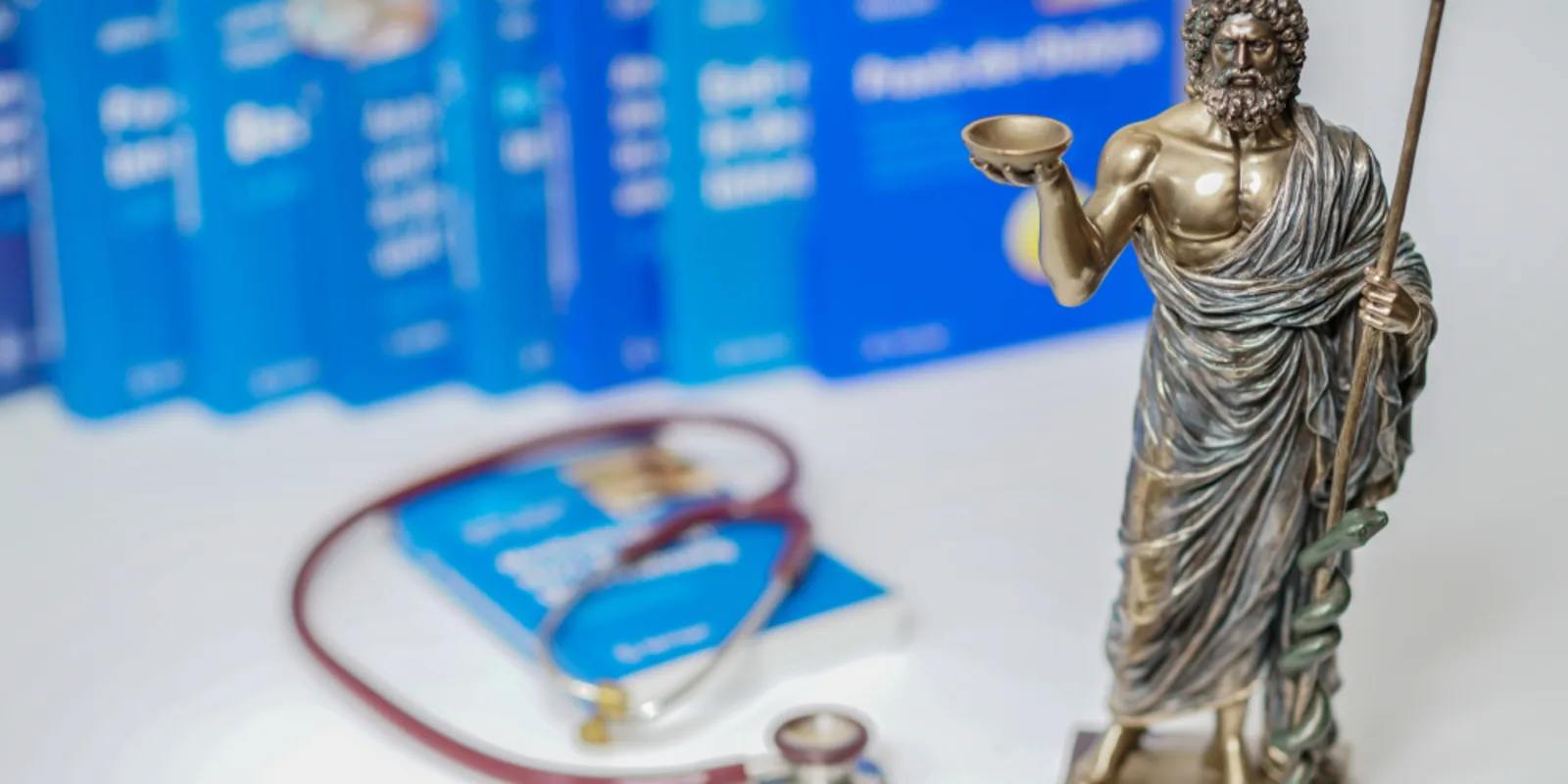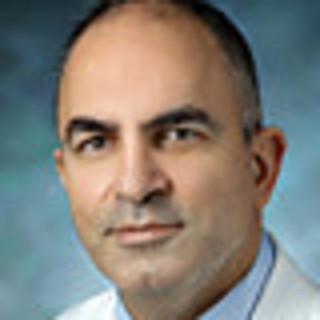
Our society has entered an era of steep social transition fueled enthusiastic and well-intended activism. One of the targets of this trend has been medical tradition, on which an indiscriminate assault threatens with loss of its positive contributions: wisdom and the apprenticeship model. Change has always been perceived as a threat to tradition, and vice versa. Yet, a careful examination of the past and an honest analysis of current forces reveals we should not need to sacrifice one for the other.
The Cautionary Lessons of the Original Hippocratic Oath
Various English translations of the original Hippocratic oath in Ancient Greek (1) are taken by most physicians upon graduation from medical school. These modern versions focus on the concepts of confidentiality and non-maleficence (2). However, the The Hippocratic Oath begins by making all Gods — but specifically Apollo, Asclepius, Hygieia and Panacea — witnesses to the Oath (1). Apollo, was God of music, truth, prophecy, the sun and light, poetry and, relevant here, the God of healing, ill-health, plague and leader of the muses. Why would the Greeks appoint a God who could (and did) unleash illness and death upon humans to watch over physicians’ compliance with the Oath? Because they recognized that as surely as a God could misuse his powers to cause illness and bring about the plague, so could an uninspired (lacking a muse?), poorly trained physician.
The (D)evolution of Teaching in Medicine
The university, in the modern sense of the word, is a rather new concept, especially in the tradition of medical training. Prior to the introduction of the university, training (or education) was based on the apprenticeship model. This model saw a “master” who mentored one (or a manageably few pupils) in a specific art. Their relationship was long-term with frequent close personal contact and many times extended to areas beyond the specific art. The "master” took on the role of a parent figure or a life-coach, mentoring the pupil and transmitting his/her hard-won wisdom along the way, instead of just having students read about how to perform a task.
For example, who would acquiesce to a surgeon who had forgone hands-on training but claims to have achieved wisdom by meditation alone, operate on their child? The relevant to medicine definition of wisdom then is the knowledge gained from practice, and importantly from errors in practice. The transmission of this type of knowledge — wisdom — requires prolonged and personal contact between the “master” and the pupil, one found in the apprenticeship model of education.
The Threat of Big Data, Machine Learning and Artificial intelligence
Such jargon has intruded into everyday discussions in medicine. Every conference held nowadays allocates significant time and effort on these concepts. Super-excited (usually) younger physicians and researchers hold animated conversations about the promise of Artificial Intelligence, Machine Learning and the potential of Big Data in propelling research forward. Undoubtedly careers will be built (and crash) upon these uncertain shores. For those with a bit more wisdom in “the ways of the world of medicine,” this exuberance “feels” irrational and needs to be moderated. In the end, the true potential of these pendular concepts will be realized somewhere in between those claimed by the fringes, as always. Thus, as important as it is to discuss the promise of these concepts, so is an honest discussion about their limitations, even threats. Let's consider two examples.
Question 1: What will Big Data give us?
Promise: For one thing, a much more precise median and a much smaller variance in our calculations. Great for academic publications.
Threat: But remember, almost no one is on the median of anything. Height, weight, risk of cancer, response to chemotherapy, complication risk etc. If a cancer patient asks “How long do I have left?” will any of these concepts allow you to be more specific? And if it does, will you? “Five months and six days Mr. Pappas, five months and six days.” Will it replace the humanity of your answer, the empathy that must be evident in your explanation by a precise number?
Question 2: What’s an advantage of Machine Learning?
Promise: Certainly it may take over unappealing chores and allow physicians time away from menial tasks
Threat: These “menial” tasks and “unappealing” chores however, are not useless. They do make a valuable contribution to the maturing of a trainee and his/her appreciation of the phylogeny of medical science. Machine Learning will keep trainees away from many tasks and consequently away from a certain type of thinking, analyzing, discourse and arguing. It will “help” them jump straight to diagnosis and treatment. Do we see the risk?
We must ask ourselves what we lose by faithfully leaping into implementing these concepts. History may very well come down in favor of these concepts, but that does not mean we cannot or should not address their imitations with equal fervor.
The False Promise of Labor-Replacing Technology in Training
Technology has a way of becoming part of the fabric of our lives. What was novel, futuristic technology yesterday is an absolutely indispensable necessity today. And there is a very good reason for it: technology makes our lives better and longer. But unconditional surrender to technology should not be an axiom during training. This is because new technology not only replaces old technology, but may also hamper the development of certain clinical skills. I remember I was on call in my institution’s Emergency Room (ER) the night the number of CAT-SCANs surpassed, for the first time ever, the number of plain films. It was a shocking realization then and an indictment to our declining clinical competency and/or the dwindling trust in our own physical exam skills. More relevant to my world as an Interventional Radiologist, our trainees must be taught how to obtain arterial access (for procedures such as angiograms, embolizations etc) and then safely close the access site when finished. And yes there is a piece of technology for each process. A high-frequency, flat-head ultrasound for vascular access and the vessel closure device du-jour. Both make my life as a teaching attending easier and eliminate what some trainees view as menial tasks. These menial tasks are 1. “blindly” accessing the vessel and 2. appropriately holding pressure for 15 minutes afterwards. Let us examine what we lose if we make liberal use of this technology during training. First, trainees will hardly be able to obtain vascular access without ultrasound guidance. What if they do not have the luxury of this technology where they end up in practice? What if in an emergency there is no time to wait till the ultrasound machine makes it down form five floors away? What if there is no closure device or the device fails? What if one is not even in the hospital and encounters a bleeding trauma victim? We will have a “physician-spectator” unable to provide the basic life-sustaining measure of holding pressure to stop the bleeding.
Refocusing the Ethos of Medical Training
Medicine as we physicians know it and as it has been practiced and passed on for millennia is facing an existential threat. The changes over the last few decades, some articulated above, have eroded every facet of the art. The clinical independence of physicians is curtailed and our creativity is shackled. Clinical competency has been dethroned as our primary aspiration by other trendy and fashionable ideas. So has mentorship and apprentice-style teaching. Inevitably, the end of one generation of physicians will witness the loss of their hard-won wisdom, condemning the next to making the same mistakes anew. With the stakes this high, there is no sitting on the fence: Join the resistance or be a collaborationist. What does resistance look like: We must commit to mentoring future physicians and help them think freely, creatively and unafraid. Teach them how to critically evaluate all change and to recognize the promises of false prophets, such as early, over-reliance on technology and capitulation to bureaucracy. One can learn how to use the ultrasound machine next month, but once the moment of passing on wisdom is gone, it is gone for good. What good is Artificial Intelligence if its natural counterpart is idled? In rushing to feast on the promise of Big Data we forget the biggest data of all: the accumulated wisdom of previous generations.
Lest we become merely the bank tellers of medicine we must heed the warning of the Ancient Greeks: Re-learn to appreciate the value of hard work, tradition and loyalty to the art of medicine and its teaching. In the end, the only entity that can truly treat a patient is not an algorithm, but a potential patient.
References
1. Greek Medicine. History of Medicine Division, National Library of Medicine, National Institutes of Health. https://www.nlm.nih.gov/hmd/greek/greek_oath.html
2. Askitopoulou H, Vgontzas AN. The relevance of the Hippocratic Oath to the ethical and moral values of contemporary medicine. Part II: interpretation of the Hippocratic oath-today’s perspective. Eur Spine J. 2018;27(&):1491-1500
3. Romero-y Huesca A, Soto-Miranda MA, Ponce-Landin FJ, Moreno-Rojas JC. Foundation and organization of the University of Bologna from the XII century to the Renaissance. Cir Cir. 2006;74(5):397-404
Christos Georgiades MD PhD is a professor at Johns Hopkins University.
Image: Ugis Riba / shutterstock






